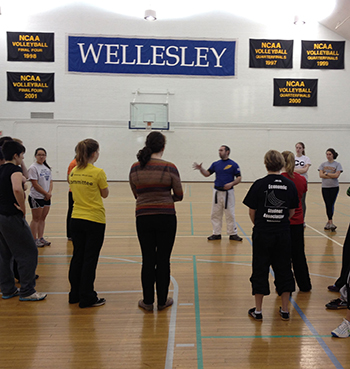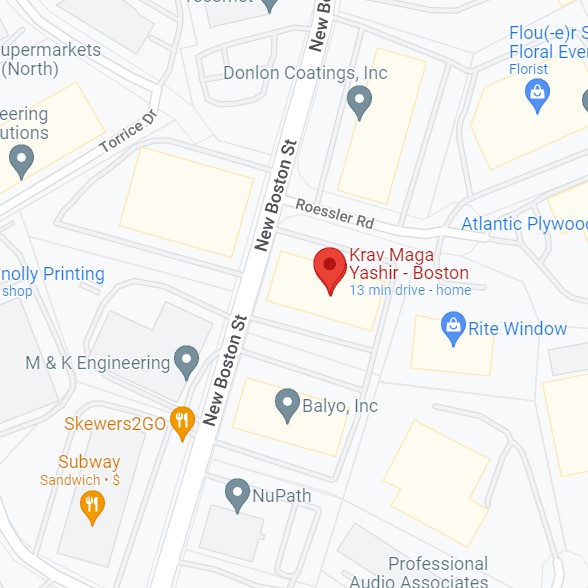Online Women's Campus Safety Program
About Our Women's Campus Safety Program
 One of the greatest defenses a woman can have against being sexually assaulted is age, as Anna C Salter,
a profiler and predictor of sexual assaults says, "The statistics for rape tell a very odd story. Women
are least safe at home and least safe with friends, acquaintances, and family...the best thing we can do
to protect ourselves is grow older." Being the target of sexually aggressive behavior and Sexual assault
is something women are most at risk of during their teenage years and those of their early 20's. In a
study by Koss, Gidycz, and Wisniewki (1987), 54% of women reported having been the target of some
form of sexual victimization, including sexual coercion as well as attempted and actual rape,
since they were age 14. The study also backs up the opening statement about women being least safe with
friends and acquanitances, as 54% of women who were raped were sexually assaulted whilst on a date and
overall 84% knew their attackers.
One of the greatest defenses a woman can have against being sexually assaulted is age, as Anna C Salter,
a profiler and predictor of sexual assaults says, "The statistics for rape tell a very odd story. Women
are least safe at home and least safe with friends, acquaintances, and family...the best thing we can do
to protect ourselves is grow older." Being the target of sexually aggressive behavior and Sexual assault
is something women are most at risk of during their teenage years and those of their early 20's. In a
study by Koss, Gidycz, and Wisniewki (1987), 54% of women reported having been the target of some
form of sexual victimization, including sexual coercion as well as attempted and actual rape,
since they were age 14. The study also backs up the opening statement about women being least safe with
friends and acquanitances, as 54% of women who were raped were sexually assaulted whilst on a date and
overall 84% knew their attackers.
University and Campus life can afford young people a rich opportunity to enjoy new freedoms and take responsibility for their own life without the presence of parents and other adults. Often young women are equipped with incorrect ideas and outdated knowledge about the ways in which sexual predators operate. They are told to avoid walking home late at night, to avoid talking to strangers etc and whilst this is all good advice is does little to protect them against the seemingly "nice friend" who has other plans for them beyond helping them with their studies or going out for a quiet drink with them - niceness is a learnt behavior it is not a character trait and this means that those who wish us harm can pretend and act otherwise.
Sexual Predator's live their lives on a 24 by 7 basis, looking for a way to gain access to their targets/victims and this is usually by stealth and guile rather than by outright force. On the contrary most young people spend little more than a few moments thinking about the possibility of being sexually assaulted and when they do so they concentrate on the assault itself and not on the ways they could have possibly prevent it, identify it and disengage from it. Whilst we teach physical solutions to sexual assault we also teach the preventative measures that allow a person to avoid becoming the target in the first place.
Our system doesn't simply prescribe a list of do's and don'ts (the people that you are trying to protect yourself from know this list too) but instead teach young women the skills they need to predict, prevent and identify violence before it occurs. This is the idea of self-protection.
We educate young women as to the methods that sexual predators use (including date/acquaintance rapists) and how to identify the steps that are taken in order for them to identify their victim and then put their potential target into such a disadvantageous situation that it is unlikely that they will even fight back - this is why simply teaching physical self-defense rarely works. We combine our physical self-defense training with the appropriate head knowledge and situational training that allows young women to make sense of what is happening from the first moment and gives them the time to disengage before the situation turns physical.
We don't just discuss the extreme cases of violence against women such as rape and sexual assault but look at partner abuse both verbal and physical and the different directions that these forms of aggression can take. We inform women how to spot the early warning signs as well as how to act in, and end an abusive relationship, without developing a stalker or future sexual assaulter.
We conduct all our training in a calm and reassuring manner. We talk openly and don't shy away from the hard subjects. We are not about inciting panic, paranoia or hysteria around young women's self-defense but about informing and educating young women concerning the dangers they may face and how to prevent and avoid them.
Free Online Campus Safety Course Structure & Modules
Foundations Of Campus Safety
This module is a foundational one, that looks at the commonalities between seeminly different assaults and criminal acts. It looks at the way different situations develop, and what indicators are present that allow individuals to predict and recognize, assaults and attacks before they occur. It is worth reading this module before looking at specific assaults and criminal acts, as it provides a framework, for understanding violent. To read more, please click here
Module 1 - Rape & Sexual Assaults
One in five, female students are raped or sexually assaulted, whilst at college or university. This number is believed to be on the low side as many victims of sexual assaults, don't report their assailants because they either know them and don't want to get them into trouble, believing that they may have lead them on and actually be to blame for their assault, or because they don't think that their is enough evidence for them to be believed. As a result many victims of rape drop out of college/university and forego their education.
This module looks at the methods rapists and sexual assailants use to gain access to their victims, and the ways they orchestrate situations so that the people they target, end up complying with their demands and requests before being assaulted. By the end of this module you should be able to identify the tactics and methods they employ, and be able to predict sexual assaults before they happen. To read more please click here.
Module 2 - Abusive Relationships & Stalking
College & University years, are usually the ones where individuals, engage in their first serious and often long term relationships. However not everyone who at first glance appears to be good boyfriend material is. We may believe that we are good judges of character, however often abusive partners, whether they are emotionally or physically abusive, don't properly reveal who they are until they are much more comfortable in the relationship. By this time it may be much harder to end the relationship without unnecessary consequences. Learning to identify what the warning signs are with such individuals is an important skill to have.
This module also looks at stalkers and stalking. This is because many abusive partners end up stalking their ex-partners after the break up of the relationship. The motivations and methods of stalkers are detailed along with ways to deal with them. To read more please click here.
Module 3 - Thefts, Burglary & Muggings
It is easy to forget when you first move away from home, whether on or off campus, that you are living with and are surrounded by strangers, and people you don't know very well. The casual approach that you may have taken back home concerning your property when you didn't have to think so much about security, may see you at risk of losing your possessions and belongings. This module looks at ways to keep your items safe and not having to make costly replacements.
This module also looks at muggers and street robberies that may occur both on and off campus. The process that muggers and similar criminals use, to identify locations in which to work, and their vistim selection process is explained - along with what to do if you have to deal with a mugging incident/situation. With the knowledge you learn in this module you should be able to predict and avoid being the victim this type of crime. To read more please click here.
Module 4 - Social Media & Online Safety
Social Media is a powerful way to both express yourself and keep in touch with friends and what's going on in their lives, however it is both easy to inadvertently damage your reputation and put yourself at risk without realizing you are doing so. This module looks at certain situations and incidents where college students and others have damaged their reputations, losing jobs and scholarships, have caused pain and humiliation to others, and have done things which jeopardized their personal safety.
By the end of this module you should have a better idea of social media best practices, and how to interact with both your devices and social media sites in a safer manner. To read more please click here.
Module 5 - De-escalation & Conflict Resolution
Not all violence is committed by predatory individuals who plan and orchestrate their assaults, some acts of aggression and violence are spontaneous in their nature e.g. if you spill a drink over somebody, jump a queue, step on somebody's foot, these are all things which may result in the individual becoming angry and aggressive. It is not that they came to the situation with the intent of causing you harm, rather it is something you have done, or that they think you have done which has caused them to act aggressively towards you.
In these types of situation it is usually possible to deescalate an aggressor and avoid a physical confrontation. This module will explain when and where deescalation is appropriate and when it is not, and the best process for getting someone to not use violence against you. To read more please click here.
Module 6 - Parties & Social Events
Parties and social events, contain their own personal safety issues. There is a tendency when we are in a group - especially if we believe that others who are with us, or are attending the sam event are similar to us - to feel safer than when we are alone. However, whenever there are people are in our environment there is the potential for danger and violence.
By planning ahead, and understanding the potential threats and dangers there may be we can better prepare ourselves so as to avoid putting ourselves in danger/harms way. To read more please click here.
Women's Self Defense Boston Location
SEPS Women's Self-Defense Boston, is located, at the following address, just North of Boston off of I-93 North (exit 30) and I-95 South (exit 54).


 WOMEN'S SELF-DEFENSE BOSTON
WOMEN'S SELF-DEFENSE BOSTON